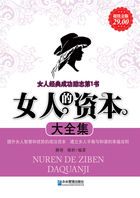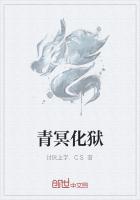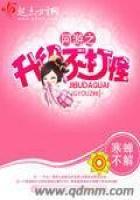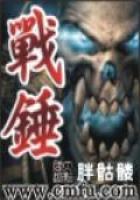Indeed, for several centuries the manufacture of silk in Europe was for the most part confined to Italy. The rearing of silkworms was of great importance in Modena, and yielded a considerable revenue to the State. The silk produced there was esteemed the best in Lombardy. Until the beginning of the sixteenth century, Bologna was the only city which possessed proper "throwing" mills, or the machinery requisite for twisting and preparing silken fibres for the weaver. Thousands of people were employed at Florence and Genoa about the same time in the silk manufacture. And at Venice it was held in such high esteem, that the business of a silk factory was considered a noble employment.It is said that the first pair of silk stockings was brought into England from Spain, and presented to Henry VIII. He had before worn hose of cloth. In the third year of Queen Elizabeth's reign, her tiring woman, Mrs. Montagu, presented her with a pair of black silk stockings as a New Year's gift; whereupon her Majesty asked if she could have any more, in which case she would wear no more cloth stockings. When James VI. of Scotland received the ambassadors sent to congratulate him upon his accession to the throne of Great Britain, he asked one of his lords to lend him his pair of silken hose, that he "might not appear a scrub before strangers." From these circumstances it will be observed how rare the wearing of silk was in England.
Shortly after becoming king, James I. endeavoured to establish the silk manufacture in England, as had already been successfully done in France. He gave every encouragement to the breeding of silkworms. He sent circular letters to all the counties of England, strongly recommending the inhabitants to plant mulberry trees. The trees were planted in many places, but the leaves did not ripen in sufficient time for the sustenance of the silkworms.
The same attempt was made at Inneshannon, near Bandon, in Ireland, by the Hugnenot refugees, but proved abortive. The climate proved too cold or damp for the rearing of silkworms with advantage. All that remains is "The Mulberry Field," which still retains its name. Nevertheless the Huguenots successfully established the silk manufacture at London and Dublin, obtaining the spun silk from abroad.
Down to the beginning of last century, the Italians were the principal producers of organzine or thrown silk; and for a long time they succeeded in keeping their art a secret. Although the silk manufacture, as we have seen, was introduced into this country by the Huguenot artizans, the price of thrown silk was so great that it interfered very considerably with its progress.
Organzine was principally made within the dominions of Savoy, by means of a large and curious engine, the like of which did not exist elsewhere. The Italians, by the most severe laws, long preserved the mystery of the invention. The punishment prescribed by one of their laws to be inflicted upon anyone who discovered the secret, or attempted to carry it out of the Sardinian dominions, was death, with the forfeiture of all the goods the delinquent possessed; and the culprit was "to be afterwards painted on the outside of the prison walls, hanging to the gallows by one foot, with an inscription denoting the name and crime of the person, there to be continued for a perpetual mark of infamy."The courage of John Lombe, who introduced the thrown-silk industry into England, was equally notable. He was a native of Norwich. Playfair, in his 'Family Antiquity' (vii.
312), says his name "may have been taken from the French Lolme, or de Lolme," as there were many persons of French and Flemish origin settled at Norwich towards the close of the sixteenth century; but there is no further information as to his special origin.
John Lombe's father, Henry Lombe, was a worsted weaver, and was twice married. By his first wife he had two sons, Thomas and Henry; and by his second, he had also two sons, Benjamin and John. At his death in 1695, he left his two brothers his "supervisors," or trustees, and directed them to educate his children in due time to some useful trade. Thomas, the eldest son, went to London. He was apprenticed to a trade, and succeeded in business, as we find him Sheriff of London and Middlesex in 1727, when in his forty-second year. He was also knighted in the same year, most probably on the accession of George II. to the throne.
John, the youngest son of the family, and half-brother of Thomas, was put an apprentice to a trade. In 1702, we find him at Derby, working as a mechanic with one Mr. Crotchet. This unfortunate gentleman started a small silk-mill at Derby, with the object of participating in the profits derived from the manufacture.
"The wear of silks," says Hutton, in his 'History of Derby,' "was the taste of the ladies, and the British merchant was obliged to apply to the Italian with ready money for the article at an exorbitant price." Crotchet did not succeed in his undertaking.
"Three engines were found necessary for the process: he had but one. An untoward trade is a dreadful sink for money; and an imprudent tradesman is still more dreadfuL. We often see instances where a fortune would last a man much longer if he lived upon his capital, than if he sent it into trade. Crotchet soon became insolvent."John Lombe, who had been a mechanic in Crotchet's silk mill, lost his situation accordingly. But he seems to have been possessed by an intense desire to ascertain the Italian method of silk-throwing. He could not learn it in England. There was no other method but going to Italy, getting into a silk mill, and learning the secret of the Italian art. He was a good mechanic and a clever draughtsman, besides being intelligent and fearless.
But he had not the necessary money wherewith to proceed to Italy.
His half-brother Thomas, however, was doing well in London, and was willing to help him with the requisite means. Accordingly, John set out for Italy, not long after the failure of Crotchet.















